Twin challenges shake govt confidence
2014 has seen federal govt struggling with the fallout from anti-government sit-ins as well as the war on terror
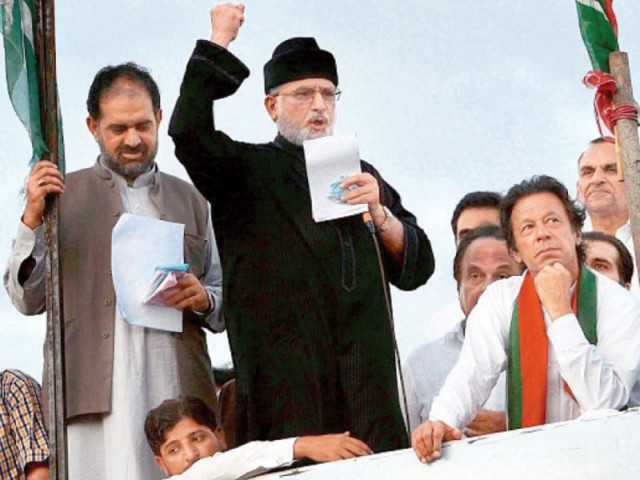
Twin challenges shake govt confidence
Though its tenure may have started out on a promising note, the year 2014 has hardly ended well for the Pakistan Muslim League-Nawaz (PML-N) led government. It is unlikely for the ruling party to have foreseen the accelerated war against terrorism, Operation Zarb-e-Azb, or even the anti-government protests when it began framing its roadmap for 2014. Both have proven to be huge challenges.
Unfulfilled plans
The biggest stories for the federal government next year are the president of China’s visit to Pakistan, PML-N’s majority in the Senate and induction of 2,400MW of electricity in the national grid before the summer of 2015 to reduce load-shedding. This was the opinion of members of PML-N’s core group when The Express Tribune asked it to reflect over the past 12 months. Some members of this group are part of the federal cabinet. The members added that PML-N’s main recognition has always been via what they termed “the country’s development which needs political stability”. The members blamed the government for having missed its set targets of 2014 on PTI, PML-Q and PAT’s anti government protests. Members of the federal government expressed the hope that the party’s core committee will try to put the party’s stalled manifesto into practice once again.

Where is the Chinese president?
In February 2014, Prime Minister Nawaz Sharif, after deliberations of 50 days, decided to launch half a dozen mega projects in the country. The government spared more than Rs100 billion out of the federal government’s Public Sector Development Program (PSDP) budget of a total of Rs540 billion for 2013-2014, for these. The federal government made plans to construct 1800 kilometres of roads, revamp railways, construct dams and establish coal-based power plants, with the support of China. In 2014, the PM laid the foundation stones for some coal-based projects in Punjab and at Gaddani, and allocated funds for the Lahore-Karachi Motorway but could not succeed in getting these inaugurated by the President of China Xi Jinping due to sit-ins of political parties in Islamabad. The government has succeeded in getting $46 billion for projects related to energy and infrastructure development from China. But the main hope still rests on Xi Jinping’s visit in February 2015.
The fight against terror
When Operation Zarb-e-Azb in North Waziristan Agency was announced against terrorists in the wake of the June 8 attack on Jinnah International Airport Karachi, leaderships of PAT, PML-Q and PTI decided to stop their movement against the federal government and supported the operation. Immediately the federal government signalled its willingness to cash in on the sympathy wave and began to refocus on its development agenda, so that it would be able to complete the announced projects.

Azadi and Inqilab
Perhaps the biggest miscalculation of the PML-N led government was that it took the PTI-led anti-government protests much too lightly.
With the elections of May 11 2013, Pakistan Tehreek-e-Insaf (PTI) started its movement against alleged rigging, demanding an audit of four National Assembly constituencies. PTI chief Imran Khan, in every speech, warned the government to take the rigging charges seriously, and to open up four constituencies (NA 122, NA 125, NA 110 and NA 154) where he, Hamid Khan and Jahangir Tareen lost their seats.
Then in June 2014 Pakistan Awami Tehreek (PAT)’s head Dr Tahirul Qadri announced plans to return to Pakistan and oust the federal government. Qadri had also staged a four days sit-in at Islamabad before the 2013 election, demanding postponement of the election and to establish a government of national unity. Pakistan Muslim League (PML-Q)’s leadership also stepped up on the scene in April 2014, and opened the party secretariat at Davis Road Lahore, and started reorganising the party.

On June 17 2014, the Model Town incident occurred during which 10 PAT workers were killed in a clash with the police over the issue of removing encroachments from PAT’s secretariat. That issue sparked anger across the country against the federal and Punjab governments. Punjab Chief Minister Shahbaz Sharif had to remove his law minister Rana Sanaullah and announce a judicial inquiry.
However this was not enough for Qadri who announced his return to Pakistan on June 23. Imran Khan who had postponed a scheduled rally in Bahalwapur due to Zarb-e-Azb withdrew his earlier call and vowed to address the rally. Imran, during his Bahawalpur rally on June 27, announced the Azadi March on August 14 against the government, while Qadri on August 10 announced the Inqilab March on August 14.
In an act of desperation, PM Nawaz on August 13 addressed the nation and wrote a letter to the Supreme Court to form a judicial commission to inquire into the allegations of rigging. But the PTI remained skeptical and vowed to carry out its Azadi march with the demand that first the PM should resign. Out of a total of 22 political parties in parliament, 20 parties supported PML-N during this political impasse and asked the PM to not surrender to this demand of PTI’s leadership. Both sit-ins, collectively, proved to be the proverbial sword hanging over the government’s head. Qadri’s sit in Islamabad ended in two months on October 22, and PTI’s sit-in ended on December 17 after a good four months. Five heads of states cancelled their visits in Pakistan due to the sit-ins. The talks between PTI and the government over details of the JC are still under way, while PAT as a face-saving did not cooperate with the Joint Investigation Team on the Model Town incident.
Effects of the Peshawar school carnage
The Peshawar Army Public School (APS) incident forced Imran to call off his sit-in and to support the government in implementation of the 20-point National Action Plan against terrorism which all political parties crafted in their December 24 meeting at Islamabad. The government has unanimous political support over the issue. However, now the government cannot afford to be complacent. National security soon became the government’s top agenda, while development is now a second priority. The funds have thus been diverted.
Published in The Express Tribune, December 31st, 2014.

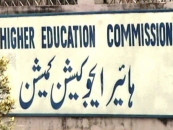
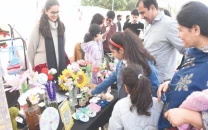
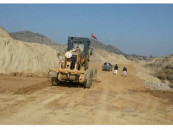
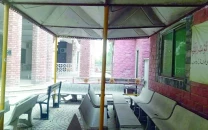














COMMENTS
Comments are moderated and generally will be posted if they are on-topic and not abusive.
For more information, please see our Comments FAQ